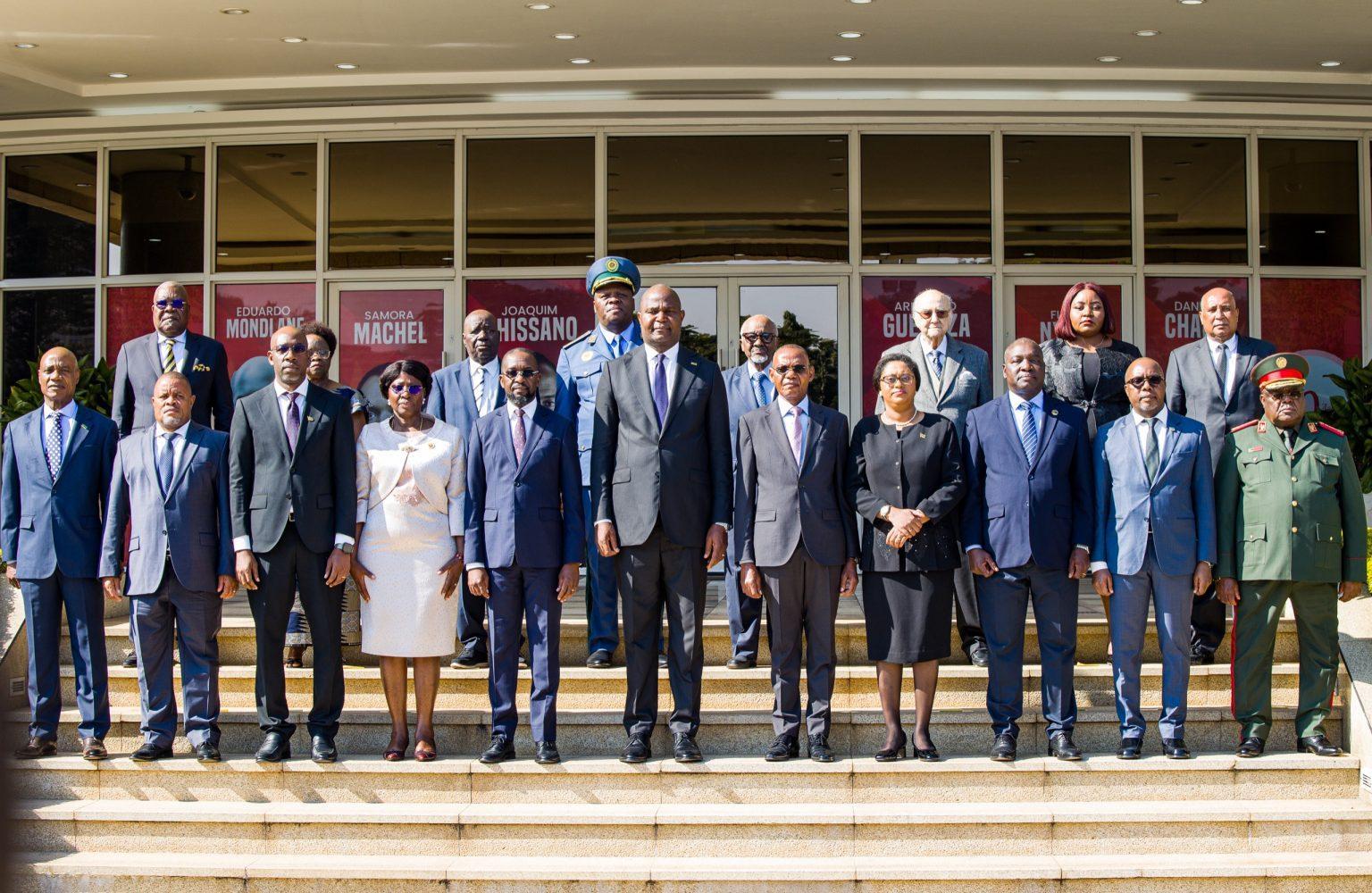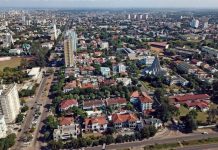Africa-Press – Mozambique. Mozambican President Daniel Chapo has called on the National Defense and Security Council (CNDS) to develop strategies to fight the Islamist terrorism that has been plaguing the northern province of Cabo Delgado.
According to Chapo, who was speaking on Monday, in Maputo, during the ceremony in which he swore into office new CNDS members, in addition to the recurrent terrorist attacks in Cabo Delgado, the country’s tranquillity is also disturbed by members of the peasant militia, known as the Naparamas.
Speaking at the inauguration ceremony, Chapo also listed among his concerns transnational crimes, climate change, the effects of international economic crises, the need to consolidate the country’s internal macroeconomic stability, and the elimination of instability in a context of political diversity.
“These challenges we have just mentioned, in addition to endangering our political independence, threaten the implementation of our government’s agenda, which consists of laying the foundations for our economic independence,” added Chapo.
The CNDS members who took office today on Monday were mostly very well-known figures who have served previously on the Council. They include two former security ministers, Mariano Matsinha and Jacinto Veloso, a former chief of staff of the armed forces, Antonio Hama Thai, and two veterans of the independence war, Joaquim Munhepe and Marina Pachinuapa. Among those elected to the CNDS by the country’s parliament, the Assembly of the Republic, are a former deputy chief of staff of the armed forces, Olimpio Cambona, who was appointed by the former rebel movement Renamo, and Melba Fumo, chosen by the main opposition party, Podemos.
Chapo also swore in people who are on the CNDS ex oficio – including Defence Minister Cristovao Chume, Interior Minister Paulo Chachine, Foreign Minister Maria Lucas, Finance Minister Carla Louveira, Justice Minister Mateus Saize, Agriculture Minister Roberto Altino, and Transport Minister Joao Matlombe.
Also on the CNDS ex oficio are the general commander of the police, Joaquim Sive, the chief of staff of the armed forces, Julio Jane and the general director of the security service (SISE), Jose Pacheco.
“The members of the CNDS are taking office in a year when the Mozambican homeland is celebrating 50 years of independence”, said Chapo. “Our nation is facing challenges that could jeopardize this independence that cost the blood of the best sons of Mozambique”.
The oath taken by CNDS members, the President added, “does not represent a simple protocol ritual that marks the beginning of the exercise of the functions for which they have been appointed, but rather we see this gesture as a genuine expression of the loyalty of those sworn in to serve the Mozambican homeland, advising the Commander-in-Chief on matters pertaining to national sovereignty,” he said.
“Today, more than ever, the country reaffirms its will to overcome fear with courage, delay with work and division with dialogue and reconciliation. The mission of the CNDS is not just technical or advisory, but patriotic and of high responsibility for the Mozambican people,” he said.
Chapo added that the country expects the new members of the CNDS to act ethically, transparently, and committed to the best interests of the nation.
“Your mandate requires a strategic vision, but also human sensitivity”, he said. “You are called upon to serve with impartiality, wisdom, and a sense of patriotism”.
On Tuesday, the CNDS, meeting under the chairmanship of Chapo, in his capacity as commander-in-chief of the defence and security forces, analysed the security situation in the country, notably in the Northern Operational Theatre (essentially Cabo Delgado province). The CNDS praised “the high sense of mission and responsibility” of the defence forces and their international partners “who are fighting against terrorism in a determined and courageous manner”.
A statement from the meeting declared that the fight against terrorism is intended to restore tranquillity to Mozambicans. It said the Council regards of great relevance the continued collaboration between the public and the defence and security forces “to eradicate the presence of the enemy among the communities”.
For More News And Analysis About Mozambique Follow Africa-Press






